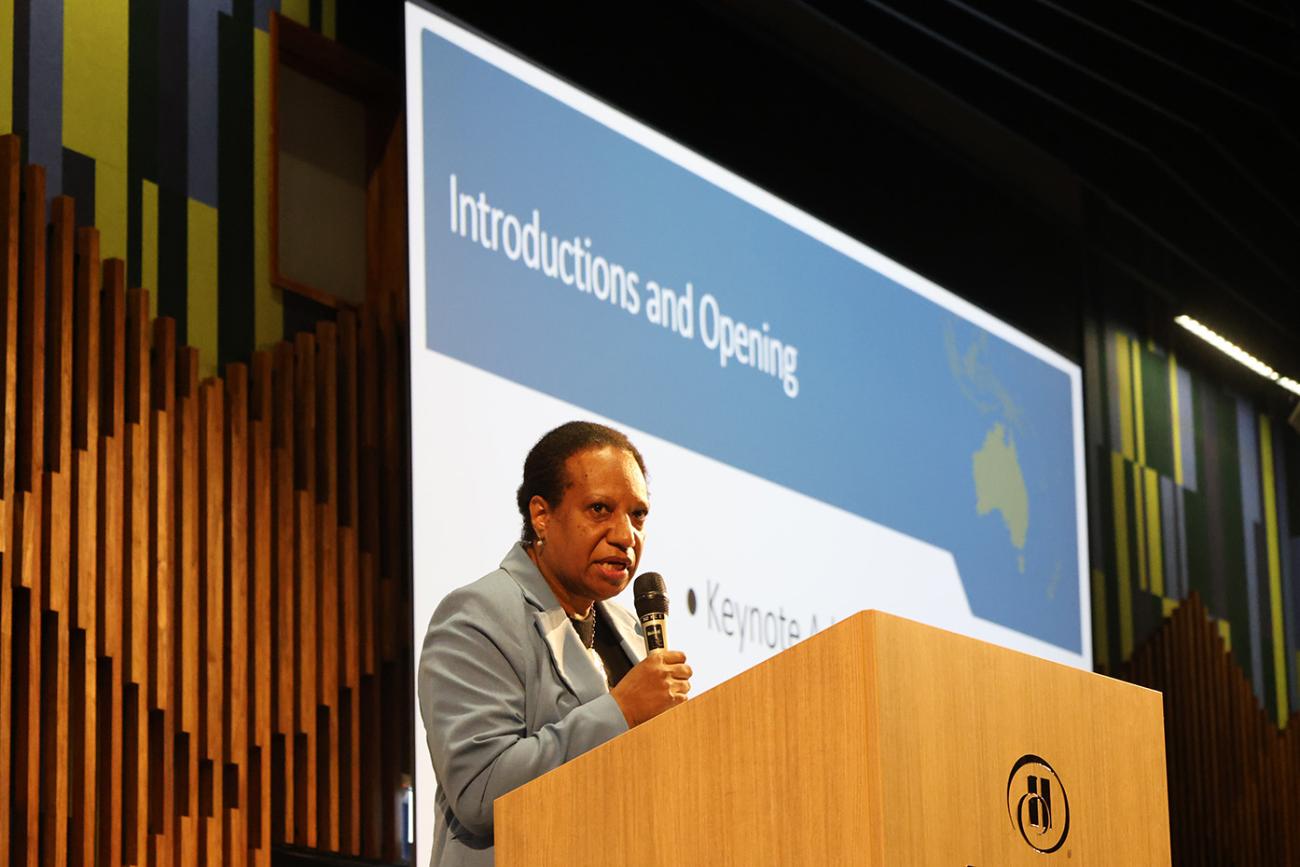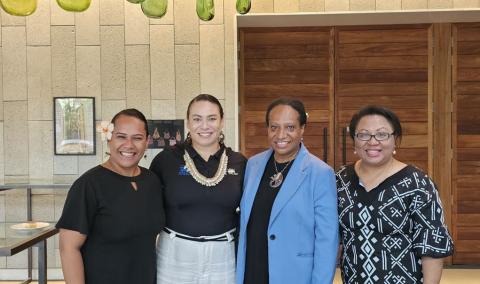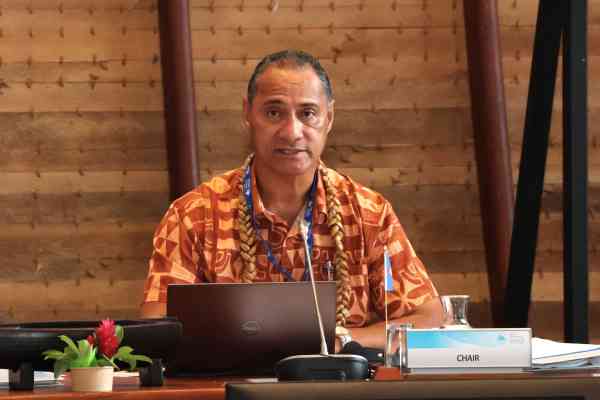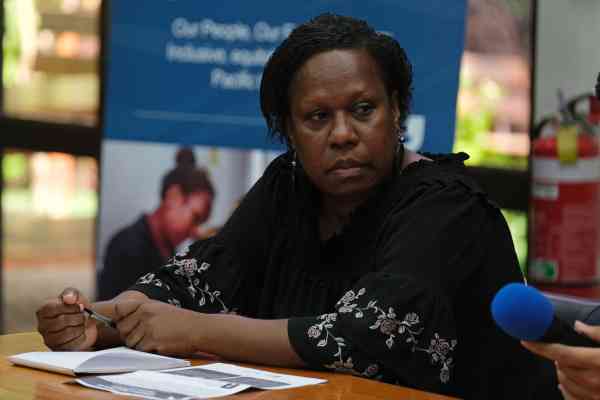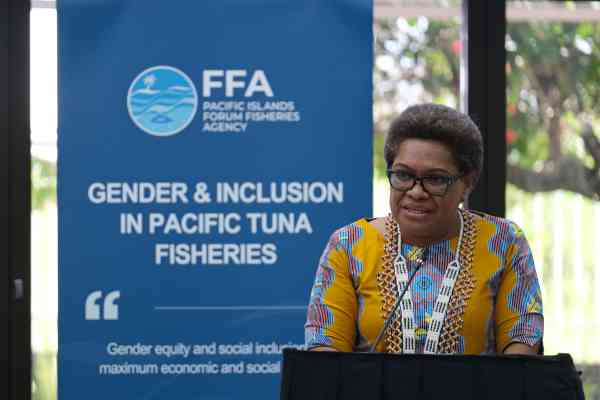
Good morning, ladies and gentlemen
Women in Papua New Guinea play pivotal roles within their families and communities, often serving as the backbone of household economies. We have a strong culture of hard-working women who sweat to earn, and we see this in today's harsh economic realities where women make ends meet to feed their families by marketing goods, subsistence farming or business activities.
Despite this, a woman who participates in economic activities is not always involved in financial decision-making and has been largely excluded from formal financial services. Women are still “unbanked” or “underbanked”, this exclusion perpetuates a cycle of poverty and inequality, locking individuals and communities out of opportunities for growth. Women in Papua New Guinea continue to face significant challenges in accessing financial resources and equitable employment opportunities.
When we discuss women’s financial decision-making inclusion, we are not merely talking about access to bank accounts or credit facilities. We are talking about empowering women to actively participate in economic decision-making processes that affect their lives and their families. It is about recognising their agency and providing them with the tools and resources to make informed choices about their finances. Again, how to manage and grow the money that is in their hands by being financial literate and capable.
First and foremost, we must work to increase women’s access to formal financial services, including tailored loan products and investment opportunities designed to meet their specific needs. Financial institutions must recognise the value of investing in women entrepreneurs and adopt gender-sensitive lending practices.
Additionally, we must invest in programmes that provide women with the skills, knowledge, and networks they need to succeed financially. This includes initiatives focused on financial literacy, business management, and technology training, as well as mentorship programmes that connect aspiring female entrepreneurs and professionals with experienced business leaders.
At the same time, policymakers play a crucial role in creating an enabling environment for women's entrepreneurship through the implementation of gender-responsive policies and regulatory frameworks. This includes measures to promote gender equality in access to education, property rights, and legal protection for women entrepreneurs, as well as childcare options for professionals to bring more women into employment opportunities.
So “why focus on women’s financial decision-making?”. Women invest money back into their families and communities. Women are agents of change in their families, communities, and countries. Women’s economic participation and ownership and control of productive assets can speed up development, help overcome poverty, reduce inequalities, and improve children’s nutrition, health, and education. Putting money in the hands of women is essential as it fosters economic prosperity.
A formal way to put money in the hands of women is employment, equitable employment. In Papua New Guinea, systematic barriers prevent certain groups from accessing meaningful employment opportunities. Whether it’s due to discrimination, lack of education and skills training or unequal access to resources. It is a must to prioritise equitable employment practices in workplaces that reflect the rich diversity of our communities and provide equal opportunities for all, both women and men.
Empowering women economically requires a multifaceted approach. It entails creating an enabling environment that fosters gender equality, providing access to financial services tailored to women's needs, and promoting policies that support women's participation in the labour force. It also requires challenging traditional gender norms and stereotypes that perpetuate inequality and limit women's economic opportunities.
Furthermore, we must recognise the intersecting barriers faced by marginalised women – including those from ethnic minorities, rural areas, and those with disabilities. Their voices and experiences must be heard and incorporated into our efforts to promote women's financial inclusion and employment.
When we prioritise financial inclusion and equitable employment we are putting money into the hands of women we not only bring women out of poverty, but we strengthen families and build resilient communities. By putting money in the hands of women and financially including them, we unleash the full potential of our human capital, driving innovation, productivity, and growth. We foster social cohesion and reduce inequality, creating a better Papua New Guinea for all.
Achieving these goals will require partnership and collaboration from the government, businesses, development partners, civil society organisations and individuals alike. The primary purpose of us gathering here today to take part in these workshops is to convene partners to strengthen coordination, enable reflections and enhance knowledge sharing.
So, as we dialogue, network, and reflect on the importance of women's financial inclusion and employment for equality, let us remember the women of Papua New Guinea — their resilience, their aspirations, and their contributions to their families and communities. Let us commit to supporting initiatives that promote women's access to financial services, education, and employment opportunities.
Let us ALL work together to create a future where every woman in Papua New Guinea – and beyond – has the opportunity to thrive and prosper.
